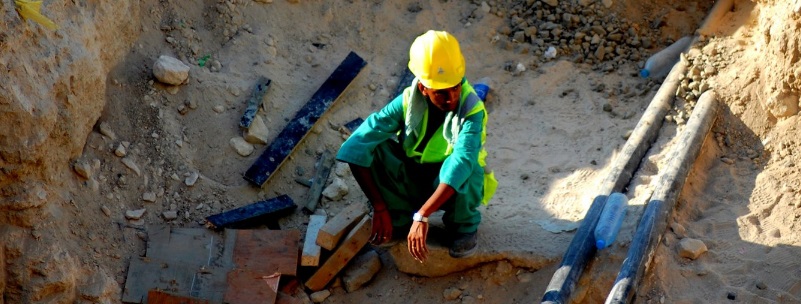While labour is cheap, productivity remains very low.
It’s not a new problem. In 1974, the UN’s Economic Commission for Africa, noted how low productivity is a concern on the continent. The Commission stressed “the need for positive action to be taken on a sustained basis aimed at securing a constant increase in the level of productivity in the use of resources, at the individual, enterprise, organization and national levels, including the adoption of appropriate measures for promoting productivity development”.
They drew attention to the “Asian experience in productivity development and the role being played by the Asian Productivity Organization (APO) in fostering the spread of productivity development programmes”. But not much has changed in Africa since these good intentions were put to work.
Without a substantial acceleration in productivity growth rates, average productivity will remain well below current levels in the developed economies for many years to come, RMB found.
Labour’s participation in national South African income, or wage share, has in fact fallen to the lowest level in 50 years. “Wages are the remuneration received by labour; profits and other income is the remuneration received by capital. The implication of the dropped wage share was that South Africa’s profit share rose to a 50-year high,” the South African company Adcorp’s labour economist Loane Sharp noted.
The drastic drop in wages’ share of national income, Loane has attributed declining labour productivity. “Since records were first started in 1967, South Africa’s labour productivity had fallen to a 46-year low, with most of the decline occurring since 1995.”
Sharp said that radical changes in labour laws since the Marxist-inspired Labour Relations Act of 1995 presented enormous challenges in terms of dismissal protections and wage escalations.
Sadly, few countries spend as much on education to so little effect as South Africa does. Its public spending on education is 6.4 percent of GDP, while the average share in EU countries is 4.8 percent.
In a league table of education systems drawn up in 2015 by the OECD club of mainly rich countries, South Africa ranks a poor 75th out of 76. In November the latest Trends in International Mathematics and Science Study (TIMSS), a quadrennial test sat by 580 000 pupils in 57 countries, had South Africa at or near the bottom of its various rankings despite vast sums of money spent on education.
A shocking 27 percent of pupils who have attended school for six years cannot read, compared with 4 percent in other African countries such as Tanzania and 19 percent in Zimbabwe. After five years at a South African school about half cannot work out that 24 divided by three is eight.
In one study in 2007 maths teachers of 12-year-olds performed tests similar to those taken by their class, including basic questions about fractions and ratios. A scandalous 79 percent of teachers scored below the level expected of the pupils. The average 14-year-old in Singapore and South Korea performs much better.
Poor productivity is holding back business in South Africa according to a report released in 2012, published in the Labour Market Navigator, third quarter report.
Analyst Peter Aling, the author, said labour productivity had declined since the 1980s, contrary to a SA Reserve Bank estimate that it had risen two percent a year since the 1960s.
He said the report found that Johannesburg Stock Exchange companies were struggling for productivity with only 65 generating labour productivity that exceeded costs.
“These findings support other data which show that labour productivity for the South African economy as a whole has fallen to a 40-year low.”
He said while the private sector was suffering from poor labour productivity, it was still working 450 percent better than the public sector.
















